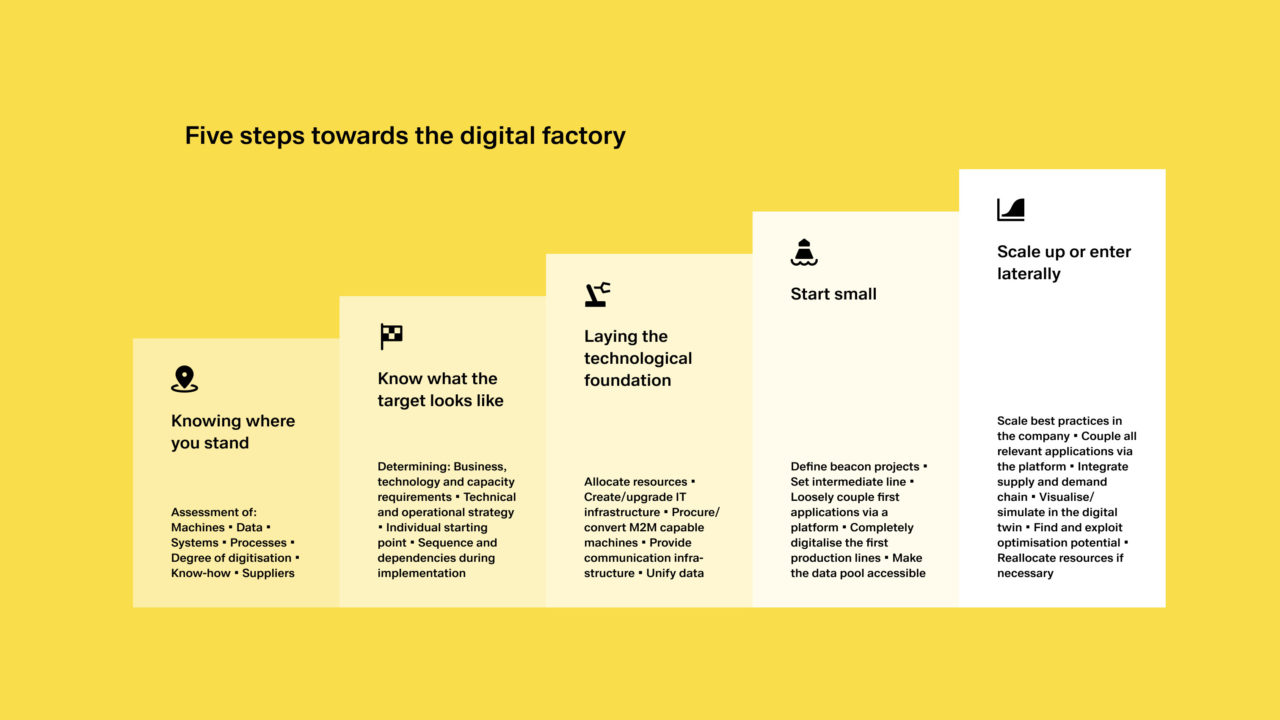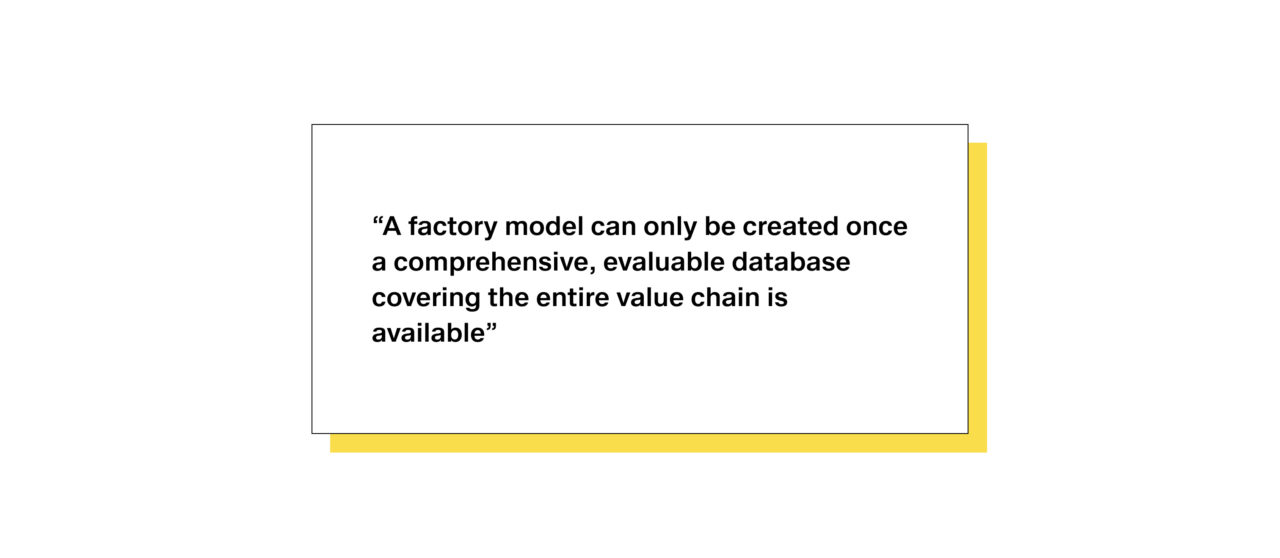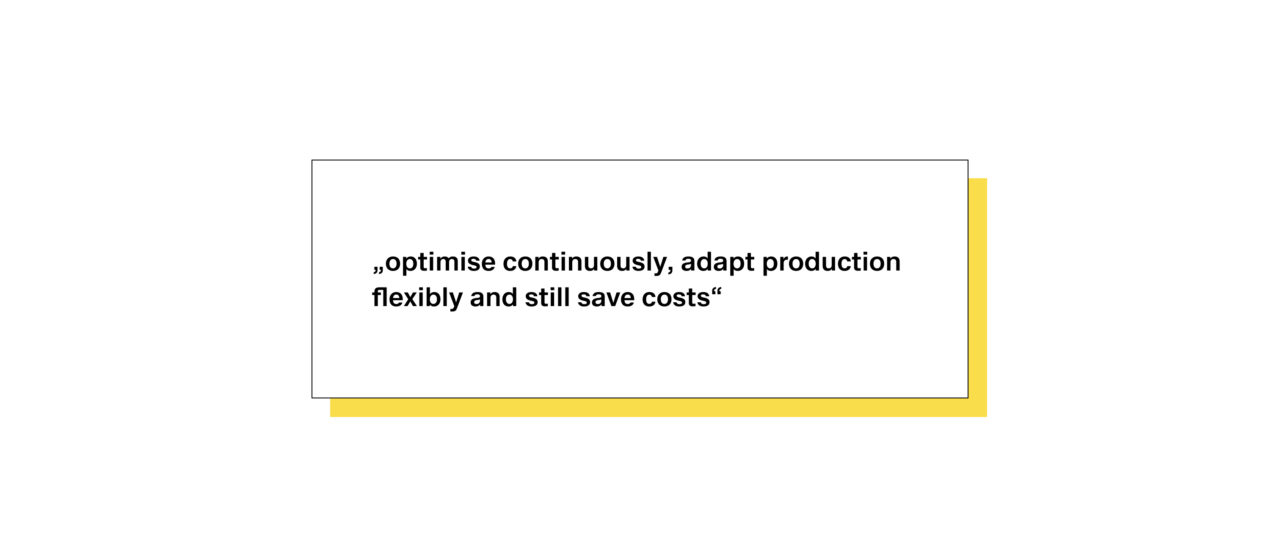Your guide to the digital factory - we'll show you the way!
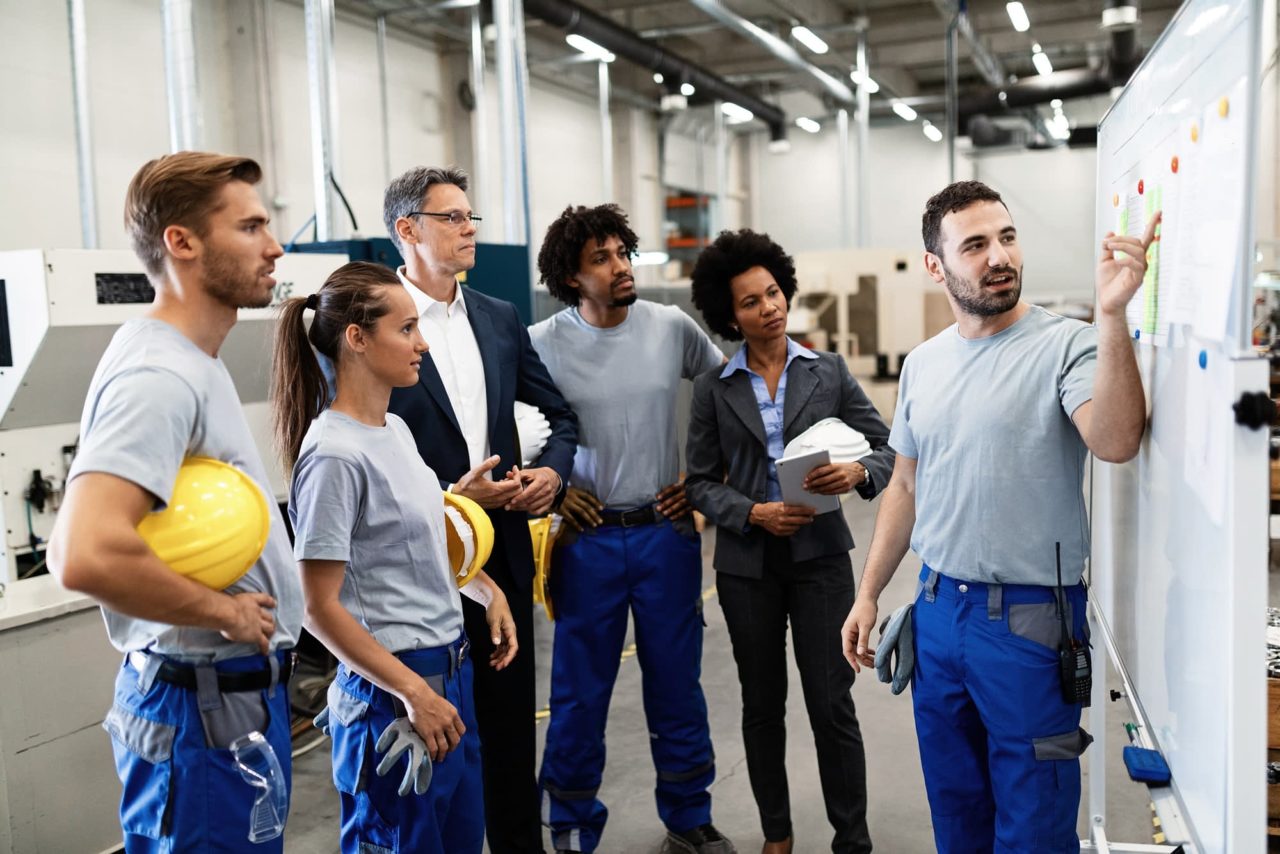
A digital factory for every perspective
Implementing a digital factory is not a one-off, structured process that is at some point complete. Industry 4.0 continuously integrates new technologies and developments – not least artificial intelligence (AI), machine learning and automation.
If you’re never finished, it almost doesn’t matter where you start. But you should at least know where you want to go: the digital factory is your vision for the future. With the right approach, you can create a flexible foundation for all future requirements.
The most important thing is to start the ball rolling because being late means risking market share and falling behind the competition.
From assessment to infrastructure – first steps
Are you still at the beginning? Taking inventory of machines, data and systems in production and beyond is essential to planning the first steps. Production environments are very complex and a variety of data in different formats from a variety of sources and different IT environments have to be merged. A factory model or a digital twin can only be created once a comprehensive, evaluable database covering the entire value chain is available. Before that, processes in production and supply chains have to be analysed.
You have the data you need for this: Plans of the shop floor, order data from the ERP, machines with data interfaces, an SCM solution… and thus the basis for networking machines, people, tools and resources. There are many starting points, including creating an optimal shop floor, digitising production lines, connectivity and control platforms. Where you start will depend on the results of your assessment.
The most important thing right now: get started. Digital factories don’t have to be implemented all at once – small steps and early successes increase motivation. It doesn’t matter if you start with Quality Management Software, SCM, MES or worker connectivity. Flexible technological frameworks – including modular QM Software or broader Quality Management solutions – that can be adapted to your needs without committing you to one manufacturer forever, are incredibly helpful. Why
Best practices and beacons – moving forward successfully
Are you mid-implementation and is your flexible technical and organisational strategy bearing fruit? The important thing now is to build on your initial successes. Regardless of where you stand, some areas will be more developed. Use this beacon project to create best practices and make a push in other areas.
Many companies are finding that the implementation of digital factories can be accelerated after the initial steps. Best practices take effect and virtual scenarios ensure that continuous optimisation has a real data basis. The digital factory offers many methods and tools for visualising or simulating factories, production facilities and the supply chain.
When expanding, it’s important to combine the right solutions with the optimal infrastructure. We offer you software solutions for end-to-end digitalisation from the shop floor to the individual parts supplier – based on the latest technological Platform as a Service (PaaS) architecture.
Ongoing optimisation – for professionals
It’s on! Building on the established infrastructure, you continue to scale horizontally and vertically – always mindful to minimise risks and optimally bundle resources. Data flows unhindered between real production and the virtual factory, you have an overview of the entire operation and the complete life cycle of your assets – and thus the chance to optimise continuously, adapt production flexibly and still save costs.
However: digital factories mean continuous development – this is an advantage in our view because it means that every development can be tested and quickly reversed in an emergency. It’s a learning process for everyone involved – even for us, although we have already worked on many implementations – but a learning process that pays off: a clear investment in the future! Request case study
As a software or SaaS partner, we will support you on your way to realising and optimising your digital factory – using design thinking workshops and our proven solutions. Learn more about our approach. Give us a call
Get in touch!
Would you like to know more about our solutions? Then please write us using the contact form. My colleagues and I look forward to exchanging ideas with you.
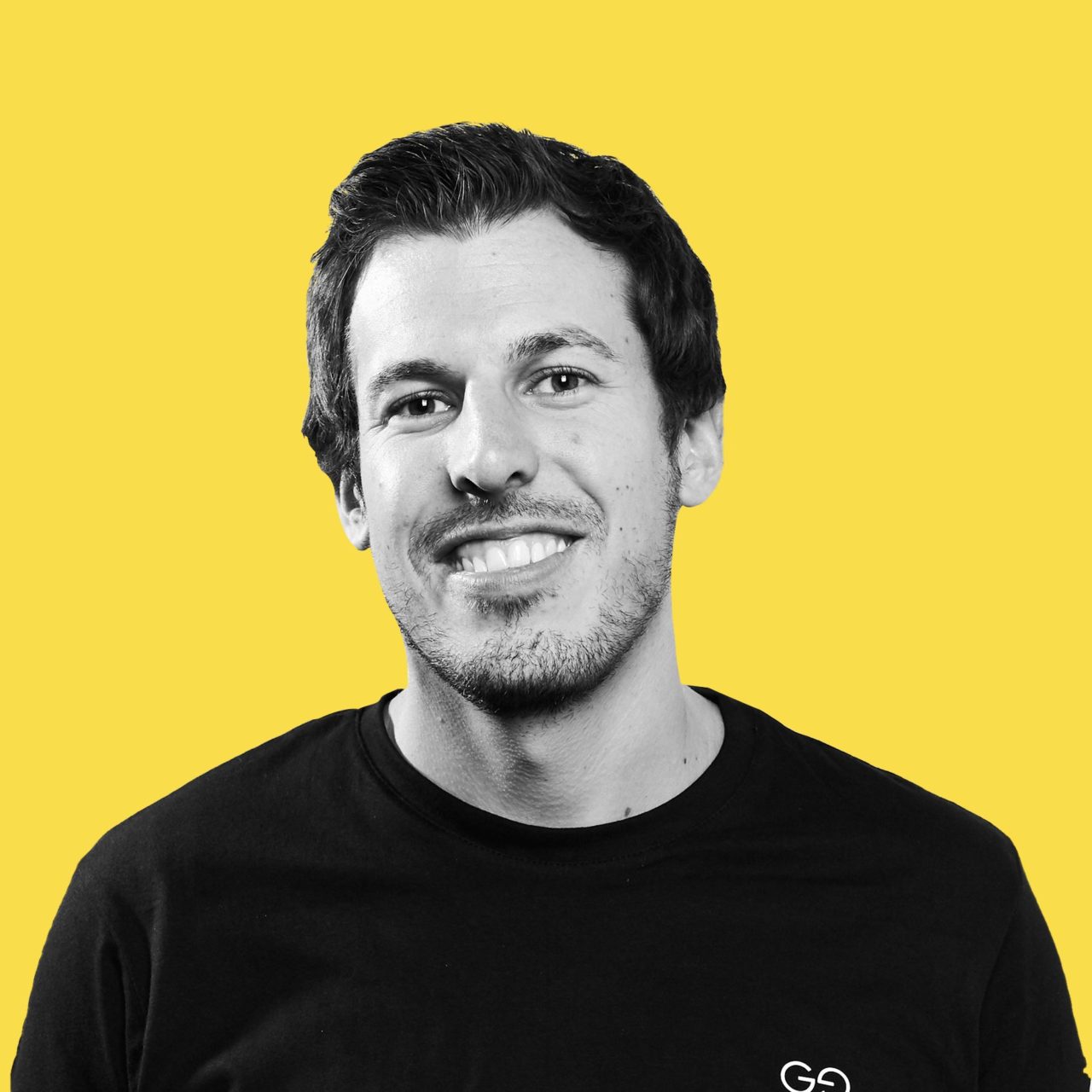
Dominik Weggler
Head of Sales Germanedge
